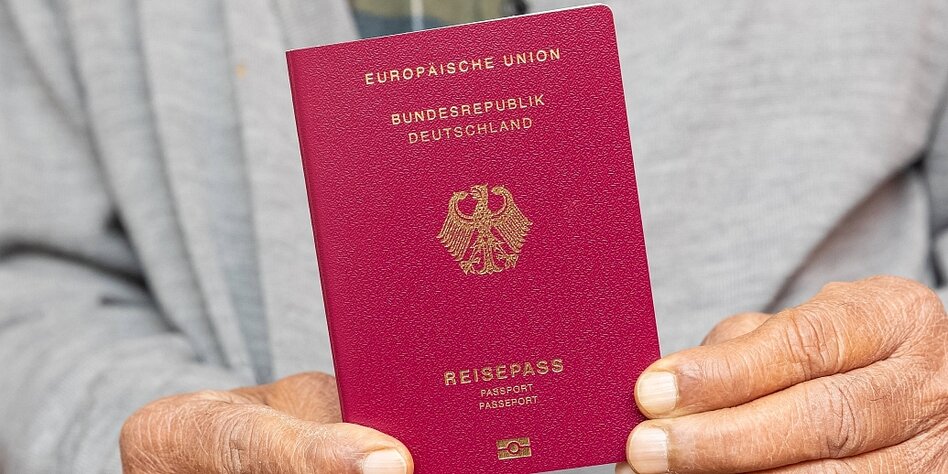Naturalization applications accumulate before the authorities. The situation could get even worse with the new naturalization law.

In the future there will be a German passport after five years instead of eight Photo: Nikito/imago
SEDAN taz | The new naturalization law goes into effect on Thursday. This means that more people will have the opportunity to naturalize in the future. The figures show that interest is already high: the number of naturalization applications has increased steadily in recent years. This emerges from a survey carried out by the Integration Media Service in the 45 most populated German cities.
While just over 100,000 people applied for naturalisation in 2022, the number rose to more than 125,000 in 2023. According to the Federal Statistical Office, the number of naturalisations also reached a record high: 200,100 people. The authorities are currently still processing more than 200,000 applications. In Hamburg, there are more than 25,000 open cases and in Berlin, more than 40,000.
Depending on the cities, the current processing time is between three months and three years. Cities indicated in the survey that the reasons for long waiting times were incomplete documents, slow cooperation with other authorities and an increasing processing backlog.
Previously, to be naturalized, a person had to have lived in Germany for eight years. Under the new law, this period is now generally reduced to five years. Anyone who can demonstrate certain requirements, such as civic engagement or special academic achievements, has the opportunity to naturalize after just three years.
Additionally, applicants no longer have to renounce their previous citizenship, but can instead obtain dual citizenship. Previously, this was only possible for citizens of EU member states and individual non-EU states.
Frankfurt expects double the number of applications
Almost all cities surveyed reported that interest in naturalisation had increased significantly in connection with the new law. In Frankfurt am Main and Freiburg, applications are expected to more than double after the new law comes into force, the press service reports.
This could further prolong long processing times before the authorities. Lawyer Mohamed El-Zaatari of the online platform Pass Experts, which offers legal advice to applicants, sees this as problematic. “In our opinion, the current situation of the authorities cannot do justice to this imminent avalanche of applications,” he told taz.
The technical and personnel situation of the authorities prevents applications from being processed efficiently and effectively. To comply with the new naturalization law, “the public service as an employer must become more attractive to its employees again,” El-Zaatari said.
According to figures from the Integration Media Service, the majority of applicants come from Syria, with Iraq in second place and Turkey in third. According to the data, the number of applications increased especially in Mülheim an der Ruhr, here with 125 percent, in Mönchengladbach with 94 percent and in Lübeck with 87 percent.
“Pass Experts” claims to have received more than 50,000 applications since the beginning of the year. A third of them have lived in Germany since 2012 or more, about a fifth since 2015. Currently, 86 percent of applicants are employed or self-employed.
More than 125,000 people are stateless
New figures from the Council of Experts on Migration and Integration also show that more than 125,000 people currently live in Germany who are considered stateless or whose nationality is unclear. The administrative and testing effort is considerable, Jan Schneider of the advisory board said at a press conference.
There is currently no uniform process for determining statelessness and the responsibility of individual authorities is sometimes unclear, Schneider said. The new naturalization rules also apply to persons recognized as stateless. According to Schneider, the problem is that the lack of transparency in the process can mean that statelessness can be recognized in one federal state but not in another.
There is no regulation in this regard in the new law. “It should be in the state's interest to have a systematic determination process,” Schneider said.
Many stateless people come from the former Yugoslavia and the former Soviet Union and were forgotten back then. Furthermore, stateless persons often come from Palestinian areas or are Palestinians who previously lived in Syria or Lebanon.
